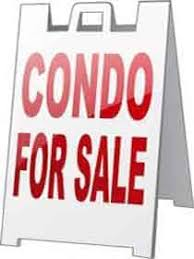Condominiums and townhouses offer an affordable option to single-family homes in most areas, but consider these facts before you buy.
1. Storage -- Some condos have storage lockers, but usually there are no attics or basements to store belongings.
2. Outdoor Space -- Yards and outdoor areas are usually smaller in condos, so if you like to garden or entertain outdoors, this may not be a good fit. However, if you hate yard work, this may be the perfect option for you.
3. Amenities -- Many condo properties have swimming pools, fitness centers, and other facilities that would be very expensive in a single-family home.
4. Maintenance -- Many condos have onsite maintenance personnel to care for common areas, do repairs in your unit, and let in workers when you're not home.
5. Security -- Some condo buildings have keyed entries and/or door attendants. Plus, you'll be closer to other people in case of an emergency.
6. Reserve Funds and Association Fees -- Although fees generally help pay for amenities and provide savings for future repairs, you will have to pay the fees agreed to by the condo board, whether or not you're interested in the amenity or not.
7. Resale -- The ease of selling your unit is more dependent on what else is for sale in your building or townhome section, since units are usually fairly similar. Single-family homes are usually more individual.
8. Freedom -- Although you have a vote, the rules of the condo association can affect your ability to use your property. For example, some condos prohibit home-based businesses. Other prohibit pets. Read the covenants, restrictions, and bylaws of the association carefully before you make an offer.
9. Proximity -- You're much closer to your neighbors in a condo or townhome. If possible, try to meet your closest prospective neighbors before making a decision.







